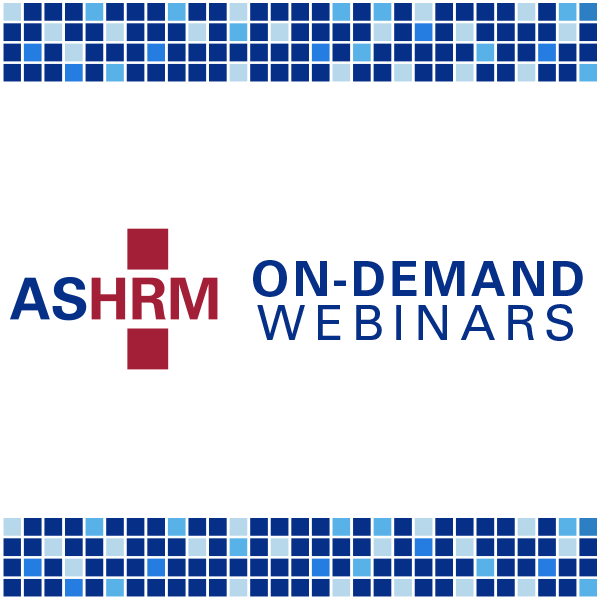Decreasing Obstetric Risk Through an Innovative Model to Improve Adherence to Best Practices
CE Credit: 1.0
Domain: Clinical Patient Safety
Level: Practitioner
This webinar discusses Boston Medical's unique peer review model so other organizations may realize similar reductions in unanticipated perinatal outcomes.
Neurologic injuries to newborns during the perinatal period are devastating to both our patients and staff. At Boston Medical, we have developed a unique and collaborative risk management program that has significantly reduced unanticipated outcomes. In addition to the traditional approach of reviewing deliveries involving unanticipated outcomes, we conduct peer reviews on 100% of our deliveries to monitor adherence to best practices. The reviews are performed on a daily basis and shared with our staff utilizing sophisticated data analytics and dashboards. Adherence to best practices is monitored and tracked by individual delivery provider, delivery nurse, charge nurse, anesthesiologist, and scrub technician – as well as trended over time. Deliveries that do not-adhere to best practices are quickly identified and provide an opportunity to educate and engage our staff. This innovative model of monitoring adherence to best practices has resulted in transformative change. We are committed to sharing this unique peer review model, and our dashboards and data analytics, with other institutions so they may realize similar reductions in unanticipated perinatal outcomes.
Objectives:
- • Identify best obstetric practices that may reduce unanticipated perinatal outcomes
- • Develop a peer review - risk management model to monitor adherence to best practices in obstetric care
- • Methods to educate and engage the staff in best practices to create and sustain transformative change
Speakers: Scott Friedman, Ronald Iverson, and Ann Hill
| Product Code | 322002OD22 |
| ASHRM CE Credits | 1.0 |
| CNE Credits | 1.0 |
| Domain | Clinical Patient Safety |
| Level - Foundational (F), Practitioner (P), Advanced (A) | P |
| Publication Date | 1/20/22 |
| Next Review | 7/1/26 |
| Credit Expires | 7/1/27 |
For questions regarding this webinar, contact ASHRMEd@aha.org
Speaker Bios
Scott Friedman - As an attorney and pharmacist, for 30 years Scott has served in multiple capacities to reduce unanticipated medical events through transparency, engagement of staff and leadership, data analytics, awareness of practices that contribute to patient harm. For the past six years, Scott served as Chief Risk Officer at Boston Medical Center, an academic medical center, where, in collaboration with his colleagues, they have developed several innovative risk management - patient safety initiatives. Their initiatives in obstetrics are unique and significant - reducing unanticipated obstetrics events by more than 50%.
Ronald E Iverson, Jr, MD, MPH is a general OBGYN at the Boston Medical Center. He graduated from Stanford University in 1987 with a BA, then from Tufts University Medical School in 1992 with an MD/MPH. He completed an OBGYN residency at the Tufts New England Medical Center in 1996. Dr. Iverson worked at Massachusetts General Hospital from 1996-2006. During that time he served as director of the OBGYN unit at East Boston Neighborhood Health Center (EBNHC). Very important to this work was the relationship between the hospital and health center and patient care transitions.
He began working at Boston Medical Center in 2006. In his role as the medical director of Labor and Delivery from 2009-2019, he focused on teamwork and development of safety guidelines and algorithms for the team of nurses, family medicine providers, midwives, pediatricians and anesthesiologists. He is the director of quality and safety as well and director of credentialing and privileging for the department of OBGYN. He is now the vice chair of Obstetrics. He is a Boston University Assistant Professor in the department of OBGYN.
At the state level, Dr. Iverson was part of the board, and then led the Boston Obstetrics Society, where he worked to improve education and collaboration between providers and hospitals in the Commonwealth. At the state level, he is deeply involved in the development and planning of the Massachusetts Perinatal Neonatal Quality Improvement Network (PNQIN), a multidisciplinary group focused on decreasing maternal morbidity and mortality and eliminating inequities in care and outcomes through collaborative QI implementation. This work extends to his service on the Executive Committee of the National Network of Perinatal Quality Collaborative, run by the CDC.
Dr. Iverson began his journey in QI as a provider leading hospital change, then trained in 2015 at the Institute of Healthcare Improvement as an Improvement Advisor. He has been involved in hospital level QI projects as well as multiple successful endeavors in his department, implementing obstetric care bundles and other efforts to reduce maternal and neonatal morbidity and improve patient experience. He helped develop and continues to lead in the Boston Medical Center Improvement Leadership Academy, which trains hospital clinical and non-clinical staff on leading change. He has experience in the use of simulations to build and reinforce quality efforts.
Ann Hill, RN JD is a registered nurse with over 20 years experience in Maternal Child Health. She spent 5 years as a travel nurse in various states where she developed a broad knowledge base and an ability to analyze safety, risk, and aherences to best practices. Currently, she works as a Perinatal Safety Risk Engineer at Boston Medical Center where she utilizes data collected through peer review to monitor adherence to best practices, and through collaboration with a team of leadership and frontline staff, establishes recommendations for unit based change.
Ann works clinically as a registered nurse in a Special Care Level 2B Nursery. She has also been a Maternal Child Health clinical instructor at Boston College and Massachusetts College of Pharmacy.
In her free time, Ann runs, swims, camps, plays softball, and enjoys endless beach days with her husband and their two daughters.



